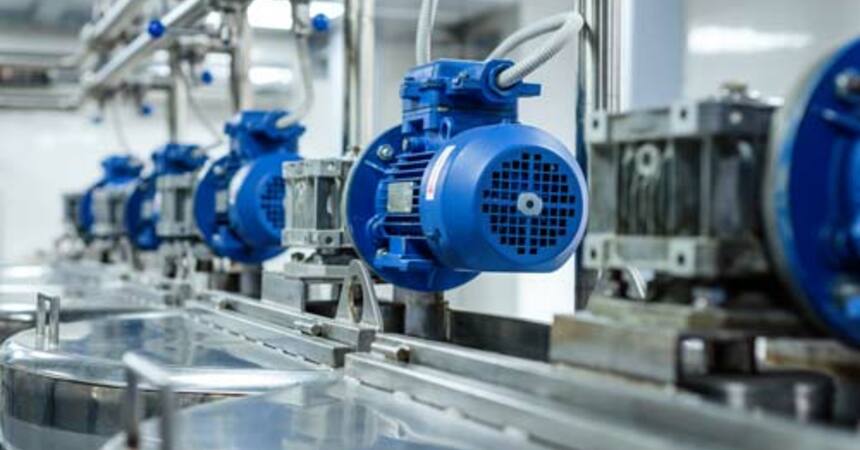EAC certification of industrial motors
Let’s dig a little deeper in witnessing what’s behind the certification of these industrial motors. First of all, we should bear in mind that there are several general types of industrial motors. The EAC certification system shows that depending upon the type of the product there may be different Technical Regulations of the Customs Union (also known as TR CU or TR EAEU for new regulations) and different documents for these regulations as well. The motors are not an exception.
Now we’re going to consider some general types of motors. The industrial motors can be divided based on the field of use. And by saying that we don’t actually mean certain branches (like oil & gas plants, chemical facilities, food industry items and so on), but the hazardous and non-hazardous branches. A branch where there is a risk of explosion of the motor while operating is considered hazardous.
Obligatory documents
Products intended for operating in hazardous conditions have to obtain the relevant Ex-proof marking and ATEX/IECEx certificates. But that’s not enough for importing such products to the EAEU. The Certificate of conformity to the TR CU 012 (for ex-proof equipment) is obligatory. That’s the first possible document needed.
Technical regulation for low voltage equipment
Next, a key factor of any electric device is the power supply voltage. The motors can be considered as low voltage equipment (power supply >50 VAC and <1000 VAC) and high voltage equipment (power supply >1000 VAC). For low voltage equipment there is another Technical Regulation, which is the TR CU 004 (exactly for low voltage equipment). So if the industrial motor has the power supply above 50 volts and up right to 1000 volts, it is subject to this regulation.
Declaration of Conformity
When it comes to the document needed, it’s the Declaration on most cases. It means that the Declaration can be issued based on the European test reports without the need of any additional testing. The standard though must be harmonized with the one of the EAEU/Russian standards.
The manufacturer is still free to go for the 3d scheme which implies the necessary testing in the accredited laboratory in the EAEU. However, it’s not always possible to carry out all the tests in the laboratory, because, for example, the size of the motor makes it highly unlikely to deliver it to the lab. In that case testing at the manufacturer’s site is an option, but in fact every case is contemplated individually.
One more important note about the TR CU 004: it cannot be applied for the Ex-proof motors because the abovementioned TR CU 012 covers the requirements for high voltage equipment.
TR CU 020
Now we’re heading to the next possible regulation here. The TR CU 020 is one of the most famous technical regulations of the Eurasian Economic Union and is applied for all equipment that has active electronic circuits and can thus cause electromagnetic fields. But there’s one very important moment here: the industrial motors can also be either synchronous or asynchronous (also referred to as induction motor).
The TR CU 020 defines that induction motors are not subject to this regulation since they have no active electronic components. No electrical connection needed to start the motor. For synchronous motors, it is necessary to get a Declaration of conformity. The procedure is exactly the same as for the TR CU 004.
Technical regulation for high voltage equipment
Last, but not the least – the motors with power supply exceeding 1000 VAC. Unfortunately there’s still no common EAEU regulation for high voltage equipment. As to the time this article is written (December 2021) this regulation is under development by the Eurasian Economic commission. No details on the date of issue are available. So now these types of motors are not subject to anything.
WorldWideBrdige can always help you in issuing any type of documents for different motors. We are experienced, flexible and always ready for consulting for our clients. Please contact us: [email protected].
Read more articles about the certification:
Heating, ventilation, and air conditioning (HVAC) systems approval for Customs union market (EAC approval)
How to get the EAC certificate for pumping equipment
By Dmitry Kondratsky
Certification Specialist. EAEU / CIS Department
